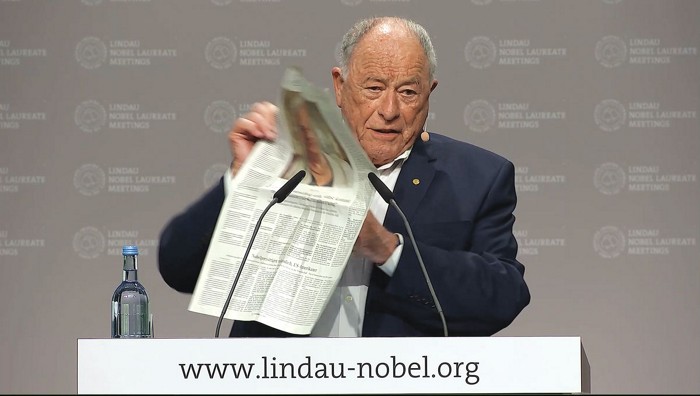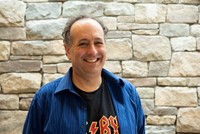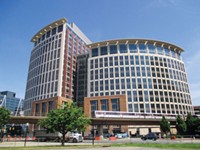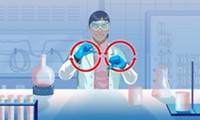Advertisement
Grab your lab coat. Let's get started
Welcome!
Welcome!
Create an account below to get 6 C&EN articles per month, receive newsletters and more - all free.
It seems this is your first time logging in online. Please enter the following information to continue.
As an ACS member you automatically get access to this site. All we need is few more details to create your reading experience.
Not you? Sign in with a different account.
Not you? Sign in with a different account.
ERROR 1
ERROR 1
ERROR 2
ERROR 2
ERROR 2
ERROR 2
ERROR 2
Password and Confirm password must match.
If you have an ACS member number, please enter it here so we can link this account to your membership. (optional)
ERROR 2
ACS values your privacy. By submitting your information, you are gaining access to C&EN and subscribing to our weekly newsletter. We use the information you provide to make your reading experience better, and we will never sell your data to third party members.
Diversity
Diversity becomes divisive at Lindau meeting
An increased focus on DEI at this year’s meeting prompts comments by a chemistry Nobelist and then broader discussions
by Laura Howes
July 6, 2023
| A version of this story appeared in
Volume 101, Issue 22

At the Lindau Nobel Laureate Meeting in Germany, Nobel laureate in chemistry Kurt Wüthrich sparked broader discussions about diversity after he spoke out against what he described as discrimination against men.
Wüthrich made his comments during a June 27 panel discussion on the future of structural biology. After describing the fun of science, he changed tack by saying, “It is clear from the first day of the meeting that science is not going to be the main subject, unfortunately.” Wüthrich called on attendees to read a German newspaper interview with fellow laureate Christiane Nüsslein-Volhard warning that diversity efforts could lead to discrimination against men. Women and people of color are still underrepresented in science.
Researchers pushed back on Wüthrich’s comments during the subsequent Q&A, and longer conversations followed. “There were huge discussions between the young scientists,” says Daniel Ming-Kang Lee, a postdoc at Max Planck Institute for Molecular Genetics in Berlin who was at the meeting. Lee says he sees the exchange as a good thing, because it brings the topic into the open.
Speaking to C&EN, Wüthrich says there are excellent female researchers in his group, department, and field and that he had not planned to make the comments before the day of the panel. After reading the interview with Nüsslein-Volhard that morning and discussing it with the researcher herself, he wanted to make sure attendees read the article. Wüthrich says he was disappointed with how the 2023 Lindau meeting changed focus from the many meetings he had attended up to 2019.
“I like people who do science,” he says. “I don’t like people so much who limit free speech about science with codes of conduct.”
The Lindau Nobel Laureate Meetings are prestigious annual events intended to promote exchange between Nobel laureates and early-career researchers. The topic of the meetings rotate through disciplines. Young scientists can attend only once.
In recent years, organizers have changed several aspects of the meeting after feedback from younger participants about their experiences. Nadja Hümpfer, a biochemist working toward her doctorate in biomedical sciences at the Free University of Berlin, attended the meeting in 2022. She recalls an open exchange with a Nobel laureate who dismissed her recounting of her experience as a Black woman in Germany. “While I was making that statement I was basically crying, reliving the trauma of racist and sexist oppression in Germany,” she says.
Afterward, organizers reached out to several attendees, including Hümpfer. “I got the feeling they really wanted to improve their DEI framework,” she says, referring to diversity, equity, and inclusion. But events at this year’s meeting show more needs to be done, she says.
In a statement published July 6, the board of the council for the Lindau meetings says that “using a topical scientific session to address matters of personal grievance does not correspond to our values, ideas and guidelines for the meetings and the programme” but that Wüthrich’s statement was “covered by his right to free speech”. The board also made recommendations for future meetings, including appointing an ombudsperson and providing anonymous reporting channels.
Hümpfer and Lee say they would still encourage young scientists who have not yet gone to the Lindau meeting to apply to attend. “This meeting is actually one of the best meetings I ever attended in my life,” Lee says. “You’re here to exchange ideas, to connect with other people—and you learn from them.”





Join the conversation
Contact the reporter
Submit a Letter to the Editor for publication
Engage with us on Twitter